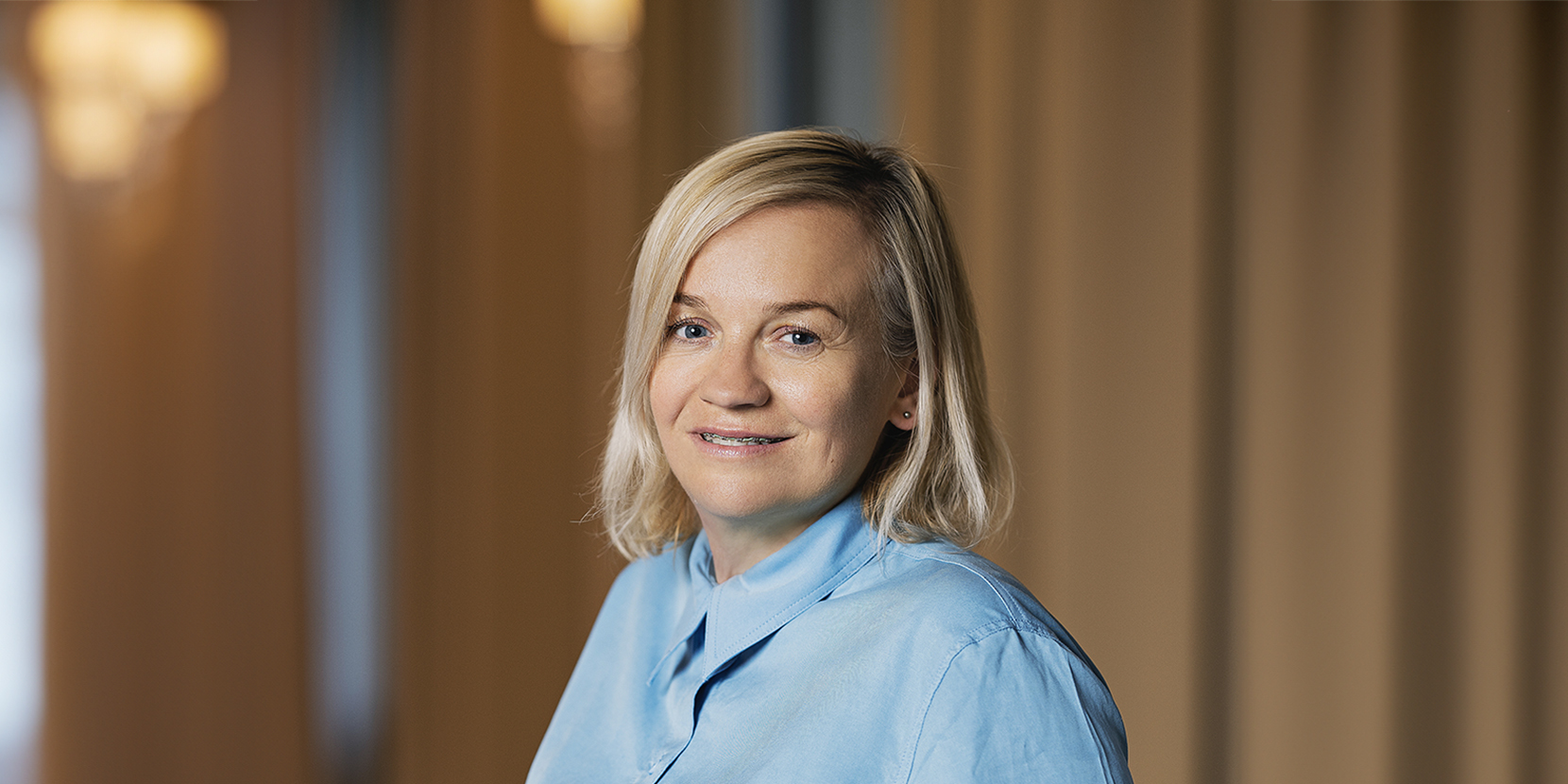
„Poczucie bezpieczeństwa wiąże się z bliskością. To mocne filary pod budowanie własnej wartości” – mówi psycholożka Magdalena Kornacka-Kowalewska
Klaudia Kierzkowska: Bliskość – dlaczego jest tak ważna?
Magdalena Kornacka-Kowalewska: Bliskość stanowi solidny fundament, mocny filar budowania poczucia własnej wartości. Bliskość, bezwarunkowa miłość, poczucie bezpieczeństwa i zaufanie wpływają na to, czy dziecko wierzy w siebie. Czuje, że jest wartością samą w sobie.
Bliskość ma związek z zaspokojeniem potrzeb dziecka. Wpływa na budowanie więzi, co wiąże się z przyjemnymi uczuciami, rozluźnieniem, spokojem, redukcją hormonów związanych ze stresem.
W jaki sposób rodzice mogą zbudować taką bliskość z dzieckiem?
Niezwykle istotny jest wspólnie spędzany czas. Małe dziecko takiego czasu i obecności rodzica potrzebuje zdecydowanie więcej. Już nawet bliskość podczas czynności pielęgnacyjnych znaczy dla malucha wiele. Nie zapominajmy o przytulaniu, drobnych gestach, uśmiechu i zabawie. Sposób budowania bliskości ze starszymi dziećmi wygląda trochę inaczej. W tym przypadku pole do działania zwiększa się. Taką więź możemy nawiązać poprzez wspólne zabawy, wyjścia na plac zabaw, ale także poprzez codzienne rytuały i czynności. Czasami wystarczy wspólna kolacja, przytulenie.
Powinniśmy pokazywać dziecku, że jest dla nas naprawdę ważne. Zapytajmy: co myśli, co czuje, jak spędziło dzień, co je miłego, a co przykrego spotkało.
Często rodzice są zabiegani, zapracowani, zmęczeni. Zdarza się, że nie mają przestrzeni, by w jakiś szczególny sposób spędzać czas z dzieckiem. Jak codzienną rutynę wykorzystać do budowania bliskości?
Już dawno stwierdzono, że nie ilość, ale jakość czasu spędzonego z dzieckiem jest najważniejsza. Można spędzać dużo czasu z pociechą, a w tym czasie robić coś zupełnie innego. Rodzic jest przy dziecku, ale przegląda telefon, zajmuje się swoimi sprawami. Może też być tak, że jesteśmy przy dziecku, które w tym czasie ogląda bajki. Liczy się jakość. Podczas budowania bliskości powinniśmy całą uwagę poświecić dziecku. Skupiać się tylko na nim, być w kontakcie wzrokowym, zniżyć się do poziomu dziecka i słuchać.
Warto zachęcać dziecko do uczestnictwa w codziennych, domowych czynnościach np. do pomocy w przygotowaniu posiłku, nakryciu do stołu. Można wybrać się na wspólne zakupy. Wszystko to powoduje, że dziecko będzie miało poczucie, że jest dla nas niezmiernie ważne. Będzie miało świadomość, że naprawdę zależy nam na czasie spędzonym razem. Cieszmy się z przebywania z własnym dzieckiem. To niezwykle ważne elementy, które powinniśmy pielęgnować w ciągu dnia.
Dlaczego tak ważne jest, by tę bliskość z dzieckiem budować cały czas? Każdego dnia, bez żadnej przerwy?
Warto zachować taką zdrową równowagę. Polscy rodzice są jednymi z bardziej wypalonych rodziców w Europie. Chciałam zwrócić uwagę na bardzo ważny element, jakim jest dbanie o swoje potrzeby. Ważne, by znaleźć czas na odpoczynek, wyjście bez dziecka. Na realizowanie swoich marzeń, rozwijanie zainteresowań. Tylko rodzic, który jest szczęśliwy, usatysfakcjonowany i spokojny, może wychować szczęśliwe i spokojne dziecko.
Jeśli już znajdziemy ten czas dla dziecka, to naprawdę warto być z nim w takim pełnym kontakcie. Nie zapominajmy o kontakcie cielesnym. Dotyk ma bardzo ważne znaczenie w produkcji endorfin, daje poczucie bezpieczeństwa. Ma dobry wpływ na samopoczucie i pozytywnie wpływa na rozwój emocjonalny. Dobrze angażować dziecko w ważne elementy, które dzieją się w rodzinie.
Jakie błędy podczas budowania relacji z dzieckiem najczęściej popełniają rodzice?
Takim najczęściej obserwowalnym błędem, który wymaga przyjrzenia się i skorygowania, jest akceptowanie dziecka ze względu na jego osiągnięcia. Takie postępowanie ma negatywny wpływ na jego poczucie własnej wartości. Musimy dać dziecku poczucie, że jest kochane, nie za to jakie jest, ale za to, że jest.
Ważnym elementem jest nieporównywanie z innymi. Dziecko można porównywać jedynie z samym sobą np. zobacz, jeszcze w zeszłym roku jeździłeś na czterech kółkach, a w tym śmigasz już na dwóch. Zdarza się, że z braku czasu, z braku możliwości zaspokojenia potrzeb, w życiu dziecka brakuje przytulania, bliskości. Niektórzy rodzice nie posiadają umiejętności słuchania, skupienia się na dziecku. Kiedy pociecha do nas mówi, skoncentrujmy się na tym. Odłóżmy telefon, pochylmy się nad nią, odpowiedzmy na pytanie. Powinniśmy zastanowić się, co mówimy do dziecka. Ile czasu i uwagi mu poświęcamy. Zastanówmy się, czy znamy jego marzenia? Czy lubimy słuchać jego opowieści. Ważnym elementem jest także akceptacja uczuć. Tego, żeby każde uczucie było przez nas nazwane, zaakceptowane. Rodzic powinien uczyć dziecko regulacji emocji, nie można im zaprzeczać. Zaprzeczenie rodzi irytację dziecka i poczucie niezrozumienia. Doceniajmy wkład i wysiłek dziecka, a nie tylko efekt i rezultat.
Tak samo ważne jak bliskość jest też chyba poczucie bezpieczeństwa?
Poczucie bezpieczeństwa wiąże się z bliskością. To mocne filary pod budowanie własnej wartości. Tak naprawdę rodzic z niskim poczuciem własnej wartości, nie wychowa dziecka z wysokim poczuciem własnej wartości. Ważne, by przyjrzeć się sobie, wzmocnić swoje kompetencje.
Jak wiadomo, dzieci z wysokim poczuciem własnej wartości są pewniejsze siebie, nie boją się podejmować wyzwań, lepiej radzą sobie w różnych sytuacjach, wytrwale dążą do celu. Nie poddają się, mniej przejmują się porażkami i nie porównują się z innymi dziećmi. Wszystko to pozytywnie wpływa rozwój emocjonalny i społeczny każdego malucha.

W jaki najprostszy sposób rodzice mogą zapewnić dziecku takie poczucie pełnego bezpieczeństwa?
Samo bycie z dzieckiem, obecność rodzica, wzmacnianie go i wspieranie w pierwszych nowych sytuacjach jest niezwykle ważnym elementem. Nie zapominajmy o wyrażeniu miłości, czułości, przytulaniu, okazywaniu zrozumienia i akceptowaniu jego uczuć. Powinniśmy dawać dziecku możliwość podejmowania decyzji, zachęcać do samodzielności, pomóc rozwijać zainteresowania. By rozluźnić atmosferę, warto wprowadzić elementy humorystyczne do codziennego życia. Rodzic powinien nauczyć dziecko asertywności np. poprzez odgrywanie scenek, tego, jak stawiać granice i modelować otwartość na nowe doświadczenia.
Ważne, żeby być rodzicem otwartym na potrzeby swojego dziecka, obecnym w jego życiu. Warto stawiać też małe kroki związane z rozwojem dziecka. Nie trzeba wyręczać go z pewnych aktywności, ale zachęcać do podejmowania różnych działań.
Rodzic powinien skupiać się na dziecku. Dzięki temu damy mu poczucie, że jest ważne, że interesuje nas, co do nas mówi, co u niego słychać.
A co w przypadku, gdy rodzice nie potrafią zbudować z dzieckiem takiej relacji? Nie potrafią zapewnić mu poczucia bezpieczeństwa? W jaki sposób może się to odbić na maluchu?
To niezwykle trudna sytuacja. Największe koszty ponosi dziecko. Rodzic, który nie potrafi zbudować relacji, najprawdopodobniej doświadczył czegoś trudnego w swoim dzieciństwie. To elementy, które wymagają własnego przepracowania. Rodzic, który nie jest w stanie zaspokoić potrzeb swojego dziecka, być może nie miał zaspokojonych swoich potrzeb, kiedy był dzieckiem.
Najbardziej pokrzywdzone jest dziecko, które staje się nieufne, ma niskie poczucie własnej wartości. Nie wierzy w siebie, być może porównuje się z innymi. Konsekwencje, które mogą pojawiać się w związku z niezaspokojonymi potrzebami, mogą doprowadzić do zaburzeń lękowych, braku stabilności emocjonalnej, wahania nastrojów, braku pewności siebie.
Być może trudność w zbudowaniu relacji wynika z zaburzeń, z którymi zmaga się dorosły np. lękowych czy psychicznych. Takiemu rodzicowi trudno jest myśleć i dbać o potrzeby swojego dziecka. Dobrze rozważyć wtedy wzmocnienie własnych zasobów i psychoterapię.
Zastanawiam się, czy brak bliskości i brak poczucia bezpieczeństwa w dzieciństwie można jakoś naprawić? Czy może pozostawia to w dziecku nieodwracalny ślad?
Trudno jednoznacznie odpowiedzieć na to pytanie. Wszystko uzależnione jest od wielu czynników. Przykładowo od tego, czy taki brak bliskości miał miejsce przez całe dzieciństwo, czy może była jakaś osoba znacząca w życiu dziecka np. babcia. Jednak w zdecydowanej większości przypadków, taki brak poczucia bezpieczeństwa i bliskości niekorzystnie wpływa na rozwój. Dlatego bardzo zachęcałabym do dokładnego przyjrzenia się i wsparcia psychoterapeutycznego, czyli skierowania dziecka na terapię.
Nie zapominajmy również o najważniejszym, czyli wzmocnieniu rodzica. Popełniane błędy często są wynikiem niewiedzy opiekunów. Każdy rodzic chce dla dziecka dobrze. Wzbogacenie warsztatu umiejętności wychowawczych daje szansę na to, że w tej relacji coś w końcu się zmieni. Rodzic będzie wiedział, jak reagować, będzie miał świadomość, co jest ważne w tym kontakcie z dzieckiem, co pomoże mu zbudować bazową więź do budowania poczucia własnej wartości dziecka.
Magdalena Kornacka-Kowalewska – psycholożka i psychoterapeutka w trakcie certyfikacji. Pracuje w szkole i w CTM, dyrektor oddziału Gdańsk. Ukończyła liczne kursy doskonalące, kwalifikacyjne m.in. z zakresu oligofrenopedagogiki, szkolenia dotyczące pracy terapeutycznej z dzieckiem z mutyzmem wybiórczym, Roczne Szkolenie z Prowadzenia Terapii Poznawczo-Behawioralnej dla dzieci i młodzieży w CTPB w Warszawie, 2 -letni doskonalący zawodowo kurs psychoterapii „Systemowe rozumienie rodziny” realizowany przez Krakowską Fundację Rozwoju Psychoterapii im. Prof. Marii Orwid. Obecnie w trakcie całościowego kursu przygotowującego do egzaminu na certyfikat psychoterapeuty.





































